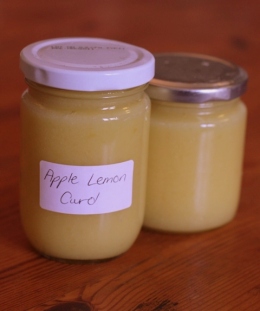
How does it always end up getting so busy at this time of year? Two months ago I was starting to contemplate Christmas shopping and in an ideal world my next sentence would be: “A month later I decided to bite the bullet and get it done early this year”. No such luck. More important engagements have kept popping up and it has been sidelined, postponed, rescheduled and then put off again. As a result I have spent the past two nights on the high street in an effort to avoid the weekend crowds and am still going to have to spend at least two more nights there because, although I thought about the task a few months ago, I did not consider what I would actually buy.
I did have the foresight to save myself one trip though. Last weekend we had an early Christmas dinner with my Mums’s side of the family. There were quite a few people to buy for, some of whom I hadn’t seen in a long time, so rather than getting them all a generic present from the gift section at John Lewis, I decided to make something. I cannot draw, paint, knit or sew so that meant cooking.
I had never made lemon curd before and was keen to try it out. I flicked through Pam Corbin’s Preserves and came across this recipe for Bramley (apple) lemon curd. I was intrigued by Corbin’s description of the curd, "it’s like eating apples and custard: softly sweet, tangy and quite, quite delicious.” Now that I have made the curd, I find this description a little misleading. The word 'custard' suggests that the curd will be soft and silky smooth, indeed in the method she writes that the the mixture should be cooked “until thick and creamy”. It does get thick, but creamy is not quite the right word to describe it. The apples give it a slightly grainy texture which is not present in lemon curd.
My curd also took a lot longer to cook than the 9-10 minutes she suggests, at least double that time. This was partly because I was doing two batches at once, although I did realise this was taking longer, so split it into two about 5 minutes in. I was also being painfully cautious with the temperature, which probably had more to do with it. Eggs and butter are very easy to split and I did not want to waste 900g apples and sugar, 4 lemons, a block of butter, and 10 eggs. If you have a sugar thermometer (I do not) you shouldn’t have this problem.
In retrospect, this is probably the perfect curd for a novice to start on. Cooking apples are high in pectin so, providing that you do not split the mixture, the setting point is doubtless more reliably achieved than with standard lemon curd.
Makes 5 x 225g jars

Ingredients
Method
Put the chopped apples into a pan with 100ml water and the lemon zest. Cook gently until soft and fluffy, then either beat to a puree with a wooden spoon or rub through a nylon sieve.
Put the butter, sugar, lemon juice and apple puree into a double boiler or heatproof bowl over a pan of simmering water. As soon as the butter has melted and the mixture is hot and glossy, pour in the eggs through a sieve, and whisk with a balloon whisk. If the fruit puree is to hot when the beaten egg is added, the egg will ‘split’. One way to guard against this is to check the temperature of the puree with a sugar thermometer – it should be no more than 55-60C when the egg is added. If your curd does split, take the pan off the heat and whisk vigorously until smooth.
Stir the mixture over a gentle heat, scraping down the sides of the bowl every few minutes, until thick and creamy. This will take 9-10 minute; the temperature should reach 82-84C on a sugar thermometer. Immediately pour into warm, sterilised jars and seal. Use within 4 weeks. Once opened, keep in the fridge.
Variations
To make gooseberry curd, replace the applies with gooseberries. If you’d like to go for a traditional, pure lemon curd, simply leave out the apples, increase the lemon juice to 200ml (4-5 lemons) and add the grated zest of 2-3 lemons.